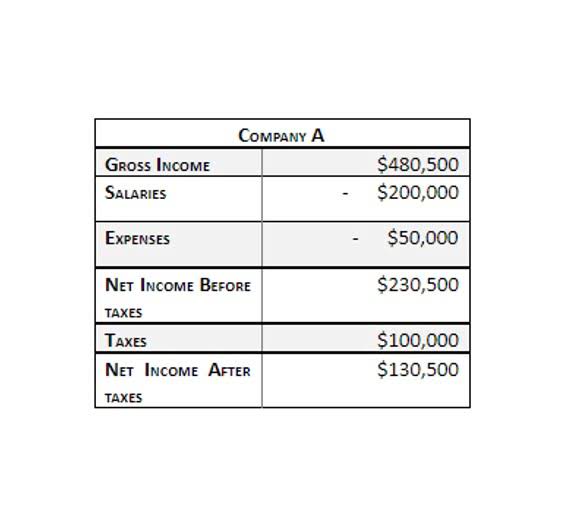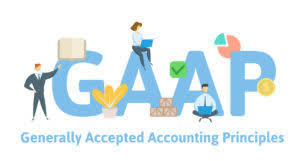
The thought of having your financial records scrutinised can be intimidating, but with proper preparation, you can ensure a smoother process. Overall, interpreting financial statements requires careful analysis and attention to detail. By mastering this skill, you can make informed decisions about how to allocate resources and plan for future growth in your business. It is important to seek advice from a qualified professional such as a tax accountant or bookkeeper if you are unsure about your tax obligations or how to file correctly. Be sure to review outstanding customer balances regularly and follow up on missed payments promptly. Expenses incurred during running your business need to be recorded too so that you can monitor them effectively.
Wonsulting and TikTok Resumes: Revolutionising Recruitment for the Future
Finally, a professional accountant or bookkeeper can take on this task if you don’t have the time or inclination to manage your sole trader accounts. They can provide more detailed and accurate financial reports and offer advice and guidance on making tax savings. Plus, it goes without saying that missing the Self Assessment deadline is an absolute no-go, which can lead to late payment charges and unnecessary stress.
Log Transactions in Real Time

You can also register voluntarily if your turnover is below the limit and if that suits you and your business – ie. If you sell to sole trader accounting other businesses that are VAT-registered and you want to reclaim the VAT. The sense of independence and freedom you’ll feel as a sole trader is amazing, but there are important administrative tasks to follow before your adventure begins. To conclude our introductory guide to bookkeeping, we’ve put together a list of top tips to help you get started.
Home Office Expense
- Learn more about how to fill out a Self Assessment for the first time with our handy one-stop guide.
- Xero is another great online accounting software which includes all of the features found in QuickBooks but is more expensive.
- Would you like to know how to become a chartered accountant, what they do and how much they earn before you hire them?
- This guide aims to break down the complexities of sole trader accounting into easy-to-understand terms and steps, helping you keep track of your income, expenses, and your business’s profitability.
- It’s essential to have a clear understanding of what will be audited so that you can focus on those areas during preparation.
- In this guide, we will explore everything you need to know about sole trader bookkeeping.
Bookkeeping requirements are much lower than that at a private or public limited company, so there is no need to overcompensate. It’s much simpler and more cost-effective to use bookkeeping best practices when you keep your personal income and expenses separate. Technically, ‘sole trader’ refers to a business structure that is subject to specific tax requirements. For this reason, it’s important to understand the best practices for financial record keeping for sole traders. When you're juggling the books as a sole trader, managing cash flow can often feel like you're walking a tightrope.

Tips for managing taxes as a sole trader
We recommend regularly setting aside a portion of your income for taxes each month, and keeping them in a separate savings account. That way, when Self Assessment season rolls around, you’re not scrambling to get your funds together. The key is to be meticulous, so always include details like dates, amounts and descriptions.
Introducing the Entrepreneur Who Has Banished Leathers for Making Timeless Sustainable Accessories

All our accounting packages include free access to Chartered Certified Accountants, so you can make confident business decisions without worrying about extra costs racking up. Stay informed about tax regulations, discover effective tax-saving strategies, and ensure compliance with our comprehensive tax guides and tips. As you can see, self-employed bookkeeping is a critical part of your law firm chart of accounts finance management.
Accounting obligations for IEs under the micro-BNC regime

Carry out these practices from the get-go to keep your financial health in check. Think of it as watering a plant; a little care frequently can result in thriving growth. It's the foundation upon which you'll make informed decisions that can fuel your business's success. You can opt for manual bookkeeping using spreadsheets or accounting software.
- We built okke to be the best and simplest bookkeeping software for sole traders, with easy to learn guides and simple terms to keep learning time low.
- Having updated and accurate records ready before auditors arrive will save you time and help in identifying any areas where improvements are needed to adhere better to AASB standards.
- For this reason, it’s important to understand the best practices for financial record keeping for sole traders.
- You’ve learned what a sole trader is and how to become one, and you’ve explored your obligations and the allowable expenses you can claim against your income, but what about the tax you have to pay?
- You can choose to create a limited company for yourself, establish a partnership with another person, or you might be looking to set up as a sole trader.
- You also must pay Class 2 & Class 4 National Insurance within 3 months of becoming self-employed.
- As part of the government’s Making Tax Digital initiative, from April 2019, all VAT-registered businesses must use software to submit their returns digitally.
The additional upper band is 45% and applies to income of £150,000 or above. Any insurance related to running the business, including public liability, professional indemnity and travel insurance. Zoho Books offers recording transactions a free package with revenue up to £35,000, standard for £10 per month, including up to 5,000 invoices and Professional for £20 per month.
Single-entry bookkeeping vs double-entry bookkeeping
It’s also essential to keep all receipts for expenses such as rent, utilities, office supplies or equipment purchases. If you don’t have a lot of transactions or don’t plan on expanding your business anytime soon, then a manual system might be sufficient. However, if you have a lot of transactions or want to scale your business in the future, then investing in accounting software is worth considering.